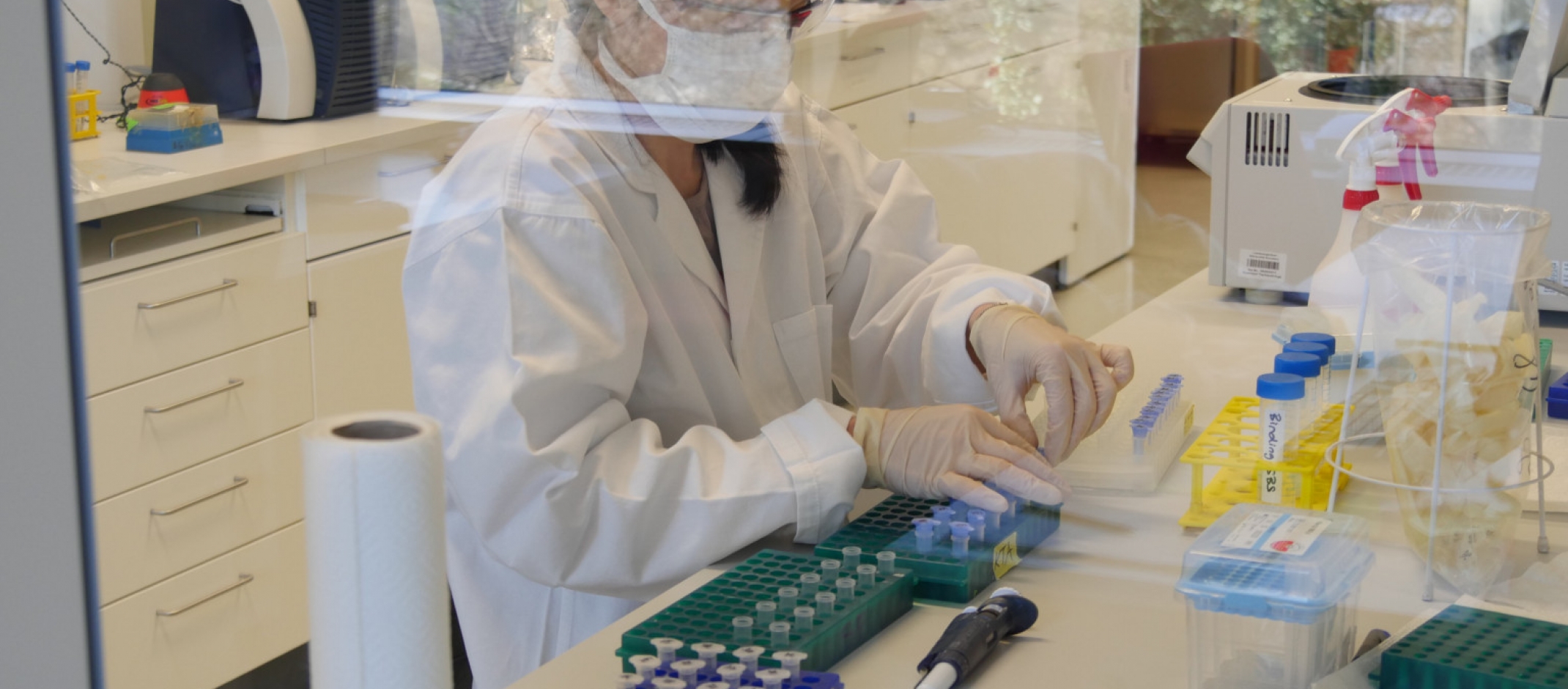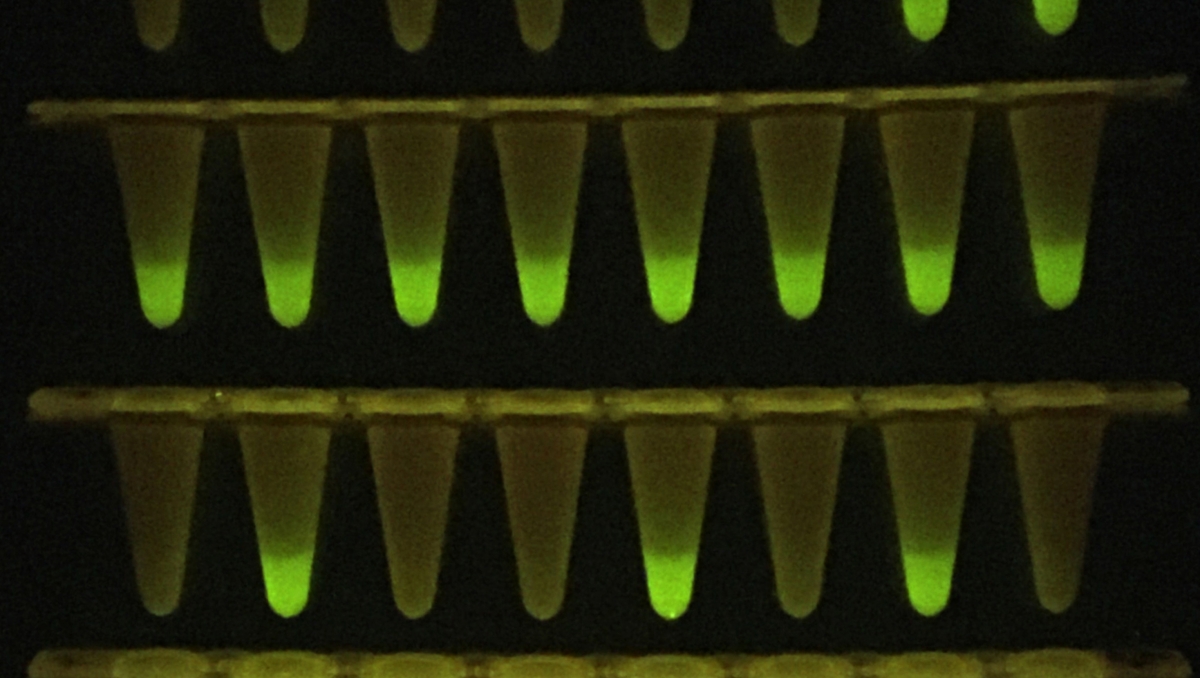Expanded SARS-CoV-2 screening at the University of Konstanz

The practical experimental content of natural sciences cannot be taught online. Consequently, regular lab courses are an integral part of these programmes. Similarly, competitive and active laboratory experiment-based research can only be carried out if researchers have access to labs. In order for scientific labs to continue to be available for everyone under the safest conditions possible during the pandemic, professors Daniel Dietrich and Christof Hauck (Department of Biology) started a SARS-CoV-2 screening project. RT-PCR stands for reverse transcription polymerase chain reaction, and the type of rapid testing based on this process can contribute to the early diagnosis of infection in asymptomatic and early symptomatic persons, i.e. early stage infected persons can be identified before the viral titre load has reached a level where the person becomes infectious to others. Thus, this early social screening approach was geared toward stopping the spread of infection within the university setting.
New rapid-testing method
In the spring of 2020, a novel SARS-CoV-2 rapid-testing method was developed by researchers led by Professor Christof Hauck from the University of Konstanz with the participation of the Konstanz hospital, the Konstanz diagnostic lab Dr. Brunner as well as the myPOLS Biotec company (a spin-off of the University of Konstanz).
This test method encompasses a heat-stable RNA- and DNA-dependent DNA polymerase, which performs the double task of stringent reverse transcription of RNA at elevated temperatures as well as PCR amplification of a SARS-CoV-2 specific target gene, making it possible to forgo the time-consuming RNA purification process. The results are thus available much faster: Staff and students who submit a sample in the morning can usually get their results in the late afternoon. Another decisive advantage when several hundred samples must be evaluated each day is that leaving out the complex RNA purification process also eliminates an expensive step in which material shortages might create a bottleneck.
This newly developed RT-PCR-test, which is in the process of certification, is much more sensitive than the widely used rapid antigen tests and already detects very small viral titres. During the pilot phase of the screening project in November and December 2020, participants could provide a weekly sample, which they performed themselves with a simple gargle lavage. In particular, the very gentle nature of collecting the sample, in contrast to the classic nasopharyngeal swab, ensured a consistently high level of participation and compliance even during the pilot phase.
Control of infection incidence through SARS-CoV-2 screening.
At the end of 2020, the rate of suspected positive cases was about 0.5 percent of symptom-free persons tested, meaning about one SARS-CoV-2 positive sample was detected among 200 samples. Since January 2021, there has been a significant decline in positive cases: recently, only one positive suspected case was found among more than 3,000 samples. All suspected positive cases are sent to certified diagnostic laboratories both in Konstanz and in Switzerland to verify the results with an independent sample. All positive outcomes are reported to the regional health authorities in Germany and Switzerland. SARS-CoV-2 infected university students and research/non-academic staff are offered continuous supervision and advice during quarantine and afterwards by Professor Daniel Dietrich in close collaboration with medical teams and the regional health authorities. In conjunction with the latter, tracing of potential chains of infection is carried out to determine the “origin” of infection.
The practical experimental content of natural sciences cannot be taught online. Consequently, regular lab courses are an integral part of these programmes. Similarly, competitive and active laboratory experiment-based research can only be carried out if researchers have access to labs. In order for scientific labs to continue to be available for everyone under the safest conditions possible during the pandemic, professors Daniel Dietrich and Christof Hauck (Department of Biology) started a SARS-CoV-2 screening project. RT-PCR stands for reverse transcription polymerase chain reaction, and the type of rapid testing based on this process can contribute to the early diagnosis of infection in asymptomatic and early symptomatic persons, i.e. early stage infected persons can be identified before the viral titre load has reached a level where the person becomes infectious to others. Thus, this early social screening approach was geared toward stopping the spread of infection within the university setting.
Successful screening is expanded
Several important conclusions can be drawn from the results so far: The hygiene measures implemented at the University of Konstanz have been highly effective and successful, not least because of the high sense of responsibility of students and staff. Although the infection rate in the region is high, the latter rate is not reflected within the university setting. Moreover, all infections registered so far, have evolved from the private setting. This suggests that continuous participation in the SARS-CoV-2 screening at the University of Konstanz can interrupt chains of infection at an early stage. In fact, cases in which individuals were detected as positive even before they experienced any symptoms prove that preventive societal screenings can prevent further infections - both at the University of Konstanz and in the private environment of the affected person.
Due to the positive results of the SARS-CoV-2 screening pilot phase at the University of Konstanz, capacities will now be gradually expanded to include a much broader range of participants. Currently, only staff members with a high level of interaction can take this test, for example staff in research teams of the faculties, in the administration, science engineering services and facility management, psychotherapy outpatients department, the university’s child care unit as well as to students participating in on-campus courses and exams. The capacities will be increased until the end of the summer semester to a level where as many university members as possible can participate in the screenings.

